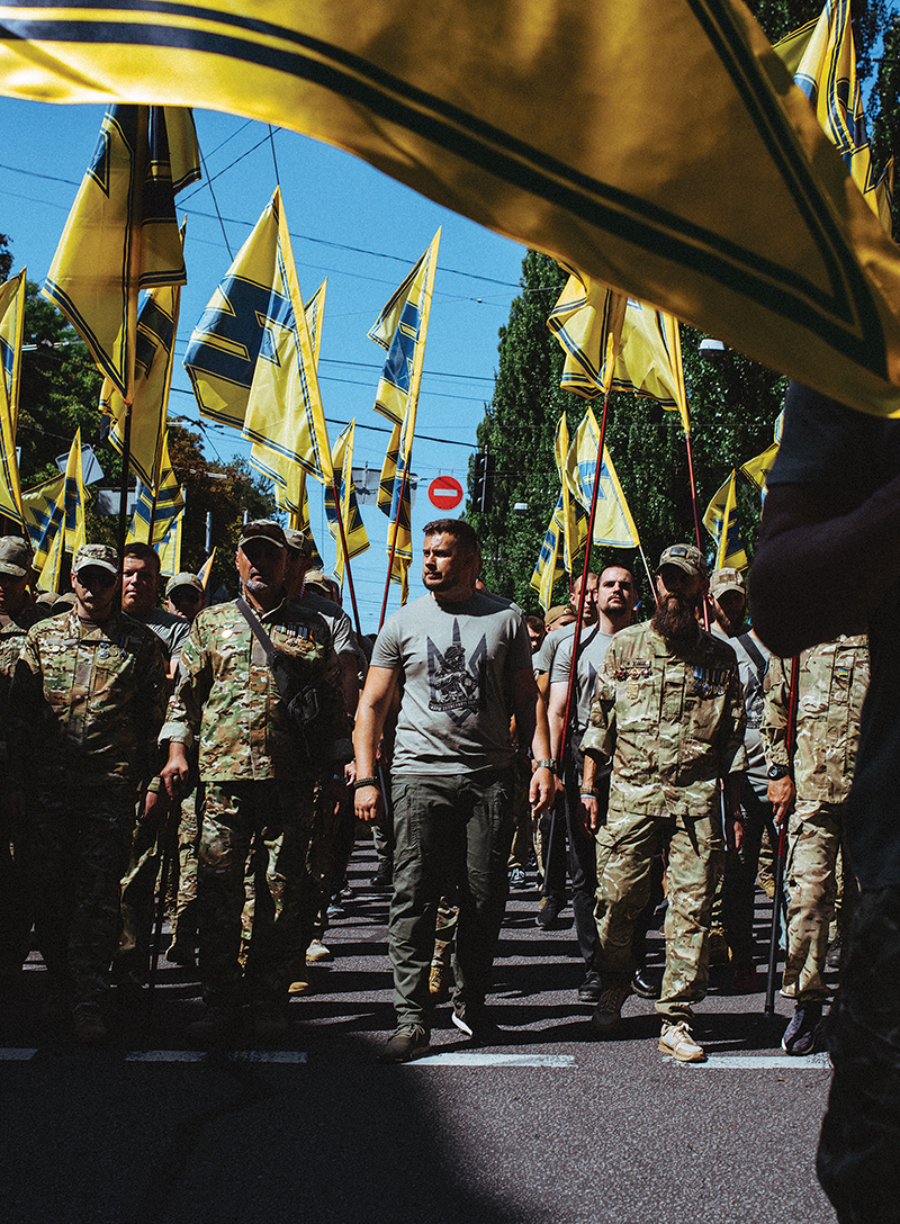
Andriy Biletsky (center) marches with Azov members in Kyiv on Ukraine’s Independence Day, August 24, 2019 (detail) © Maxim Dondyuk
Outside the city-council offices in Kyiv’s Obolon district, Andriy Biletsky was about to give a speech. It was a spring day in 2019, and volunteers from Biletsky’s far-right group, the Azov movement, were idling in the sunshine next to the gloomy Soviet-era building, while others milled about in the shade of the birch and linden trees of a nearby park, almost outnumbering the audience members. The volunteers wore tight-fitting T-shirts and heavy military boots, and were ready to record the proceedings with cell phones and camcorders. The spectators, mostly pensioners, clutched plastic shopping bags and gossiped among themselves.
Azov…






































































































